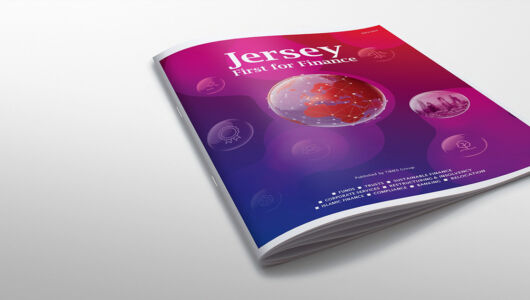Jersey’s insolvency regime is a recent example: it was expanded last year with the introduction of a process which allows creditors to apply to the court to wind up an insolvent company and for a liquidator to be appointed to conduct the winding up. This broadens creditors’ options and reinforces the Island’s recovery processes.
In this article we briefly outline the options now available to a company’s creditors and the impact the new process has made in its first year.
Jersey’s Insolvency Regime
The two key pieces of legislation governing insolvency in Jersey are the Companies (Jersey) Law 1991 (CJL) and the Bankruptcy (Désastre) (Jersey) Law 1990 (BDJL). The former is principally based on UK’s Companies Act 1985, the latter on Jersey’s ancient customary law.
A Jersey company is deemed insolvent if it is unable to pay its debts as they fall due: the ‘cash flow’ test. Unlike other jurisdictions, it is not necessary that the company’s liabilities exceed its assets: the ‘balance sheet’ test.
There are two procedures that a creditor may use to wind up an insolvent company:
1.A creditors’ winding-up under the CJL (CWU)
A CWU results in the appointment of an insolvency practitioner (IP) to administer the winding-up for the benefit of the creditors.
On 1st March 2022, the CJL was amended to introduce a ‘true’ creditor’s winding-up process, allowing creditors in Jersey to apply to the court to wind up an insolvent company. This mirrors similar measures implemented within other jurisdictions, to broaden creditors’ options. Previously the CWU process was a misnomer, as a creditor could not in fact make the application to court: it could only be initiated by shareholders of the company.
The key aspects of the ‘new’ CWU are as follows:
- A creditor may apply to the Royal Court of Jersey (RCJ) for a CWU if it has a claim against the company exceeding the prescribed minimum (£3,000) and the company is cash flow insolvent, which is established when:
- the creditor has evidence of the company’s insolvency, or
- the creditor served a statutory demand on the company and it failed to pay the sum or ‘dispute the debt to the reasonable satisfaction of the creditor’ within 21 days.
- A creditor must ordinarily provide the company with at least 48 hours’ notice of applying for the CWU.
- A creditor can seek the appointment of a provisional liquidator pending determination of the CWU to preserve the assets and records of the company.
2. Désastre proceedings under the BDJL
Prior to 1st March 2022, désastre proceedings were the only insolvency procedure available to creditors.
A creditor with a claim of more than £3,000 can apply to the RCJ for an order that the company’s assets be declared en désastre (in disaster). A successful application vests the assets of the company (wherever situated) in the hands of the Viscount of Jersey, (the chief executive officer of the RCJ and a public insolvency official) who facilitates the distribution of its assets to its creditors.
3. A winding-up on just and equitable grounds
There is a third procedure available to wind up a company on just and equitable grounds (J&E), being a flexible and effective tool but not one that is available to creditors. A J&E application can be made to the RCJ by the company, a director or a shareholder.
One Year On
As with most new processes, there are always teething issues and the ‘new’ CWU is no exception. In its first year, a number of issues have been determined by the RCJ and, more recently, the Jersey Court of Appeal, such as:
(i) Who has standing to bring a CWU application?
The Court of Appeal¹, reversing the RCJ, held that:
- an application can be made by a creditor with a liquidated claim as well as a creditor with a contingent or unliquidated claim, as long as the claim can be demonstrated to be of a value exceeding £3,000
- to establish the value of a contingent or unliquidated claim, it is enough that the Court is satisfied on a balance of probabilities that it exceeds the prescribed minimum (£3,000)
- the debt must be due and payable and not the subject of a genuine dispute
- where a court has ruled in favour of a creditor that a debt is due, the creditor remains a creditor, notwithstanding that the court’s judgment is under appeal
- an application by a qualifying creditor should be granted, unless there is sufficiently good reason not to do so. This is so even where there are insolvency proceedings already underway in another jurisdiction in respect of the company, although this may be a relevant factor in determining whether to make the winding up order.
(ii) Following service of a statutory demand, what constitutes a ‘dispute [of] the debt’ by the company?
- The RCJ² held that: substantial dispute is a ‘genuine dispute and arguable defence or counterclaim’ and
- whether there is a substantial dispute is decided in the same way as an application for summary judgment: if the creditor would succeed in such an application there will be no substantial dispute.
Impact
A concept recognised in all of the other modern insolvency regimes, the CWU has already proven to be an effective tool in promoting stakeholder confidence in Jersey.
The jurisprudence continues to develop but this is a welcome sign that the implementation of the CWU was a worthwhile initiative that is being actively embraced. We hope that the Island will continue the positive momentum and be able to report on a further addition to Jersey’s insolvency regime – administration – in due course.
Footnote:
¹ HWA 555 Owners, LLC v Redox PLC SA [2023] JCA 085
² Vidya A.G. v Sumner Group Holdings [2022] JRC 259

